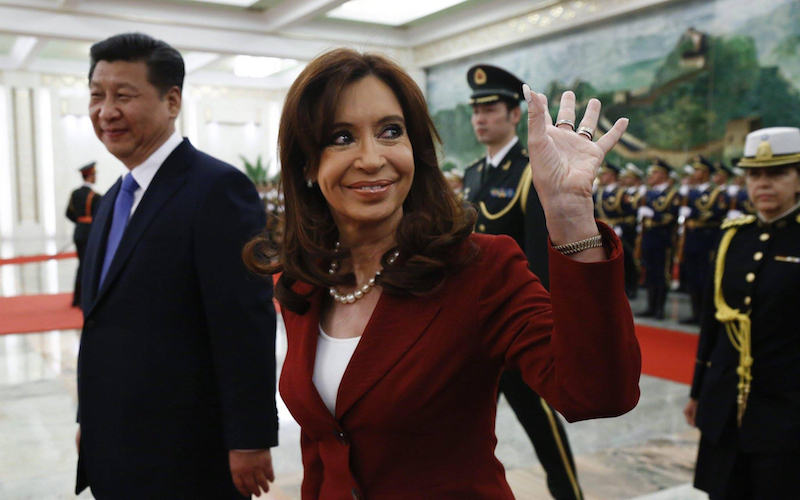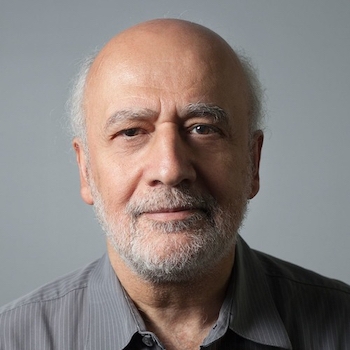
Alberto Nisman and Argentinian Politics
The mysterious death of Special Prosecutor Alberto Nisman was a painful event for his family, a dramatic experience for the country and a revealing episode in terms of Argentina’s foreign and national policy. Many issues have been and are at stake for Buenos Aires: what happened is an example of intermestic politics, of the complex and contradictory nature of an intertwined international and domestic reality
First, the persistent centrality of the 1994 bombing of a Jewish community center, the Argentine Israelite Mutual Association—AMIA, that killed 85 and injured hundreds in the country´s external agenda. That original terrorist attack, which until 9-11 had the sad honor of being the largest terrorist attack in the Americas, was never resolved. A Memorandum of Understanding (MoU) signed in 2013 between Argentina and Iran establishing a truth commission composed of five international jurists with the purpose of re-investigating the deadly bombing never entered into force: the formal exchange of verbal notes did not occur. Neither Buenos Aires nor Tehran openly explained why such a crucial decision in their bilateral foreign policy has been silently aborted. In reality what happened was the relocation of a traumatic case of impunity in a more contradictory and changing global environment than in the mid 1990s.
Several voices in Argentina objected two years ago to the MoU on moral and principled grounds. However, neither those in favor nor against the MoU took into consideration a key factor: that Argentina actually has very little control over a complex set of internal and external variables that were to unfold once the agreement was approved. Advocates and opponents lack a thorough comprehension of the geopolitics involving the original terrorist attack as well as the current reality in the Middle East. A underlying structural factor was ignored by both the government and the opposition: the Argentinian relative loss of power in the world and its diminished influence in international affairs. To which it must be added that if a course of action so bold is adopted as a treaty with a country (Iran) who aspires to be recognized as an influential regional power, inserted into an area of high volatility with multiple, intertwined, and ongoing conflicts, and where major powers have vital interests, it is extremely risky to do so without the combination of a balanced diplomacy, a proper defense and qualified intelligence.
Argentina opted for an extremely audacious international commitment without any of the above-mentioned three basic requirements. It is not unlikely that today the government faces the same constraints, both internal and external, that were present before.
Second, a key feature became evident between January (signing of the Memorandum by the executive) and February (legislative approval) 2013: the absence of a basic unanimity on the AMIA cause. The MoU, as a major, intrepid undertaking, demanded the consensus of a vast coalition of political and social forces inside and tacit, low profile consent from Washington and Tel Aviv, but neither one happened.
Domestically, and since the restoration of democracy in 1983, all signed and approved international treaties received a broad cross-party support and extensive social backing, something that made them not only legal but also legitimate. The most sensible agreement signed from the advent of democracy—the Argentine-Iranian memorandum–was backed in Congress by a single party; the official Frente para la Victoria. Instead of more and better deliberation the administration of Cristina Fernández de Kirchner (2007-2015) opted for a rushed and hardened debate when nobody, inside and outside the country, demanded this. In a way, such an outcome corroborated for pro-impunity actors (for example, autonomous factions in the intelligence community) at home and anti-Iran actors (for example, conservative forces in the United States and Israel) abroad that the society was clearly divided and that the government was extremely weak.
This “original sin”—lack of unanimity on the MoU–seems magnified today with the death of Special Prosecutor Nisman in the midst of a highly-polarized electoral year: instead of reconstructing a minimal consensus on the AMIA cause with the accent placed on victims and against impunity, the government and the opposition prefer to exacerbate their political disputes. In the end, Kirchner’s administration benefited the least because whatever the final result on the death of Nisman, the image of the government has been heavily eroded, both at home and abroad.
Third, up until recently the AMIA tragedy had not challenged the human rights record of the country. The international community has always recognized that since 1983 Argentina has had a policy of constructive and active defense of human rights, both domestically and externally, and that throughout Néstor Kirchner’s (2003-2007) presidency the AMIA cause became a central concern in an attempt to attain justice. Even though on January 19 Foreign Minister Héctor Timerman, asserted, while in New York and regarding the international expectations on the clarification of the death of the Special Prosecutor, that “Argentina has credit on human rights worldwide” and that “credit” may be easily wasted if Nisman’s death remains unresolved.
By now the AMIA cause is threefold: the original 1994 bombing that has not been solved, Nisman’s allegation of a government cover-up by means of the signing of the MoU, and the Special Prosecutor’s enigmatic death. If the three parts of an expanded AMIA cause end up in more impunity, then three decades of a positive and recognized policy on human rights will be negated.
Fourth, the temptation to overact, in terms of the country’s foreign policy, could grow. This overacting is not unprecedented with regards to Argentina’s international behavior. Historical and recent examples abound: actively embracing the “fight against communism,” as part of “defense of the Christian West,” in Central America during the latest dictatorship (1976-1983); siding with the non-aligned and seeking the support of the Soviet Union and Cuba during and immediately after the Falkland/Malvinas war (1982); and adopting the so called “relaciones carnales” (“fleshy relations”) with Washington during the tenure of Carlos Menem (1989-1999), among others. When domestic factors are the most overwhelming driver for foreign policy then overreaching occurs. In Argentina, the propensity to overact is always shown with excess, as if the country–the ruling elite under authoritarian regimes or democratic–is capable of adopting extreme, decisive positions and actions in order to confirm close ties to the West or to a superpower. In this context, one might consider the following hypothesis: the lesser the chance of clarifying internally the now threefold AMIA cause, the greater the incentive to overact in the international arena.
Meanwhile, the focus of the domestic debate is located far from truth and justice for the victims. The problem with impunity is the problem of Argentina today. Put aside the ensuing noise and the hysteria. Separate out the inventions, accusations and machinations voiced by different individuals within and outside the government. What remains at the center is impunity. And if impunity is the core of the matter then the inquiry should concentrate on the key protagonists and their strategies. Impunity today in Argentina is not a random problem. It is not the result of chance but the intended product of choice. But: whose choice? Since the transition to democracy in 1983 several key institutions, practices, and policies have changed very positively: for example, Argentina can demonstrate excellent and unparalleled credentials in terms of human rights (look at the trials of military officers involved in the 1976-83 dictatorship), the reform of the armed forces, nuclear non-proliferation, peacekeeping operations, and regional cooperation.
Notwithstanding these steps forward, for decades a complex set of actors remains intact and they all converge around impunity. First, the country’s intelligence system is extremely politicized, increasingly autonomous, mostly concerned with internal espionage, overly penetrated by foreign counter-parts, and full of mafia-style modus operandi. Second, a significant portion of the judicial system is plagued with vice, both substantive and procedural, that lead to an aberrant collusion with powerful political, social and economic interests. Third, the police forces were never seriously transformed with the advent of democracy. There remains a “trigger easy” habit, a clandestine linkage with the drug business, and worrisome corruption. These problems perversely pervade the security apparatus and become a recognized fact among citizens, experts and public officials. And fourth, many politicians—too many and for too long, at the municipal, provincial, and national level, have either traditionally remained silent and coexisted with or even promoted and profited through this opaque and anti-democratic scenario. All these players—the winners up to now—will attempt to maintain the statu quo. However, the former is becoming untenable.
Thus, three simultaneous, challenging priorities may contribute to overcome impunity. First, civil society, leading personalities, and several party members should insist that Nisman´s death be investigated with transparency and expediency. An active citizenry is one of the pre-conditions to avoid more injustices. Second, it is urgent to thoroughly reform the intelligence system (as a precursor to deeper future judicial and police reforms). A combination of social pressures and political willingness may make a difference.
Third, the only way to clarify the original terrorist attack of 1994 is not to call upon an international group of jurists but to establish a panel of renowned Argentines to replicate what was the landmark of the country’s democracy and human rights in 1983: the National Commission of the Disappearance of Persons. Now, the creation of a National Commission to Elucidate the AMIA Bombing is not only necessary but also urgent.
Unless these three actions are undertaken in the very short term the probability of more impunity is overwhelming. And if that is the case, please cry for us, Argentina.

